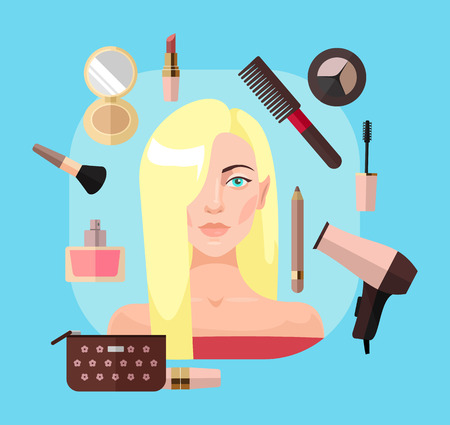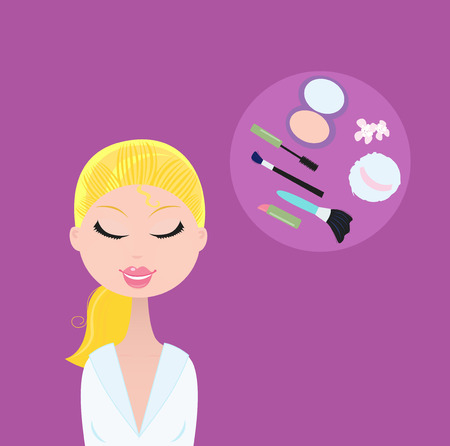1. Introduction: The Rise of TikTok Skincare in the UK
In recent years, TikTok has exploded in popularity across the UK, transforming from a platform for dance challenges and comedy clips into a hub for beauty and skincare advice. British users, especially Gen Z and millennials, are now scrolling through endless streams of skincare hacks, product reviews, and before-and-after transformations that rack up millions of views overnight. The influence of viral beauty content is undeniable—what starts as a simple video can quickly become a nationwide trend, with shelves at Boots and Superdrug often selling out of products featured by popular creators. For many Brits, TikTok has become their go-to source for skincare tips, sometimes even overshadowing traditional advice from dermatologists or pharmacists. As these trends shape the way we cleanse, treat, and moisturise our skin, it’s worth asking: how much should we trust what we see on our For You Page?
2. Viral Skincare Hacks on TikTok: What’s Trending?
It seems like every day there’s a new skincare hack going viral on TikTok, especially among British users keen to try the latest trends. From quick fixes to all-natural concoctions, these hacks often promise glowing results with items you’ll find in any UK household. But which ones are actually making waves, and why have they caught the attention of so many? Let’s break down some of the most popular—and controversial—TikTok skincare hacks currently trending in the UK.
The Most Popular TikTok Skincare Hacks in the UK
| Hack | Description | Why It’s Trending |
|---|---|---|
| Toothpaste on Spots | Applying a dab of toothpaste directly onto pimples overnight. | It’s cheap, accessible, and promises a quick fix for sudden breakouts—a massive appeal for British teens before school or a night out. |
| DIY Face Masks (e.g., Honey & Oat) | Mixing kitchen ingredients like honey and oats to create homemade masks. | Billed as natural and budget-friendly, these DIYs tap into the UK’s growing interest in clean beauty and eco-conscious living. |
| Slugging | Lathering petroleum jelly (like Vaseline) over the face as an overnight moisturising treatment. | This trend has boomed thanks to claims of waking up with dewy, hydrated skin—perfect for combating Britain’s often chilly, dry climate. |
| Lemon Juice for Brightening | Dabbing fresh lemon juice on dark spots or acne scars to lighten them. | Many British users are drawn to the idea of using ‘natural’ remedies straight from their own kitchens, despite warnings from dermatologists. |
| Sunscreen Contouring | Applying sunscreen only to certain areas to “contour” your face while tanning. | A controversial hack that has sparked debate in the UK, where sun safety is a hot topic given unpredictable weather and rising awareness about skin cancer. |
Why Are These Hacks So Appealing?
Accessibility and Relatability: Many viral skincare hacks use everyday products you’d find in any British home—from Colgate to Lyle’s Golden Syrup. This makes them not just affordable but also easily relatable. Plus, with so many young Brits seeking quick solutions for common issues like spots or dry skin, it’s no wonder these trends take off so rapidly.
Cultural Influence: There’s also a strong sense of community on British TikTok, where users share tips and personal success stories. The mix of humour, creativity, and local banter makes experimenting with these hacks feel fun and approachable.
Controversy Gets Views: The more outrageous or unconventional the tip, the more likely it is to go viral. Hacks like applying toothpaste or skipping proper sun protection naturally stir debate—and curiosity—among British viewers eager to see real results or debunk myths firsthand.

3. British Dermatologists Weigh In
When it comes to viral TikTok skincare hacks, British dermatologists are urging caution before diving headfirst into the latest trends. According to Dr. Amira Patel, a consultant dermatologist based in London, many of these DIY treatments can do more harm than good, especially for those with sensitive or problematic skin. She explains that, “While social media is a great platform for sharing knowledge, not all advice comes from qualified professionals. Some hacks, such as applying undiluted lemon juice or toothpaste on spots, can actually trigger irritation or allergic reactions.”
The Medical Perspective on TikTok Trends
UK-based skincare experts often stress the importance of understanding your skin type and underlying conditions before experimenting with online tips. Dr. James Rowe from the British Association of Dermatologists points out that some viral routines—like excessive exfoliation or using harsh household ingredients—can compromise the skin barrier and increase the risk of infections or long-term damage. “Many hacks are simply not evidence-based,” he cautions, “and what works for one person on TikTok might be disastrous for another.”
Potential Risks and Unintended Consequences
From a medical standpoint, the biggest risks associated with following unverified hacks include allergic contact dermatitis, chemical burns, and worsening of existing issues like acne or eczema. Professionals recommend patch-testing any new product or method and seeking advice from a registered practitioner if you’re unsure. Dr. Patel also notes that some so-called ‘miracle’ results shown online could be filtered or staged, which sets unrealistic expectations for viewers.
Expert Advice for Staying Safe
The consensus among British dermatologists is clear: always prioritise scientifically-backed products and consult a professional when in doubt. While it’s tempting to try out trending tricks for quick results, remember that healthy skin is best achieved through consistent care tailored to your individual needs—not by chasing every hack that pops up on your For You page.
4. Everyday Brits Try the Trends
It’s one thing to watch a slick TikTok skincare tutorial, but how do these viral hacks fare in real British bathrooms? Across the UK, everyday users are giving these trends a go—with results as diverse as the British weather. Let’s hear from some locals who’ve put TikTok advice to the test, and see how cultural attitudes play into their skincare choices.
Skincare Hack |
User Testimonial |
Result |
|---|---|---|
| Cleansing with Olive Oil | “My nan swore by olive oil for everything, so I thought, why not? Made my skin soft but a bit greasy for my liking.” – Jess, Manchester | Mixed: Hydrated but too oily for daily use |
| Lemon Juice Spot Treatment | “Saw this on TikTok and tried it on a spot—stung like mad! Not sure it’s worth the pain.” – Callum, Bristol | Negative: Caused irritation and redness |
| DIY Coffee Scrub | “Love the smell! My skin felt smooth after, but I did worry about blocking my drains.” | Positive: Smoother skin, but messy cleanup |
| Sunscreen Contouring | “Gave it a go during our rare heatwave. Ended up looking like a patchy zebra—not cute!” – Priya, London | Negative: Uneven tan and sunburn risk |
| Sheet Masks Before Nights Out | “Always do this before hitting the pub. Feels lush and makes my makeup glide on.” – Emma, Newcastle | Positive: Glowy skin, improved makeup application |
Cultural Attitudes and Real-World Reactions in the UK
British TikTok users often approach these hacks with a blend of curiosity and scepticism. Many draw on family traditions or local remedies—like using tea bags for puffy eyes—while also voicing concerns about practicality (“Who has time for a ten-step routine before work?”) and safety. There’s also a clear emphasis on affordability; with cost-of-living pressures rising, many Brits prefer hacks that use ingredients already in their kitchen cupboards.
Takeaway from British Testers
The consensus? While some viral skincare hacks offer quick fixes or fun pampering moments, results are hit-and-miss. Most Brits agree: nothing beats good old-fashioned common sense (and maybe checking with your GP before rubbing lemons on your face!). In true British fashion, a healthy dose of humour and realism is never far from the conversation.
5. Safe Skincare Tips: What Should You Really Do?
It’s tempting to try every trending hack you see on TikTok, but British dermatologists urge caution before slathering on that lemon juice or toothpaste. Here’s how you can build a trustworthy and effective skincare routine right here in the UK, with advice straight from local experts.
Stick With Trusted Ingredients
Opt for proven ingredients like hyaluronic acid, niacinamide, and SPF that are widely recommended by UK dermatologists. Avoid harsh DIY mixtures—especially those involving household items—which may irritate your skin more than help it.
Patch Test New Products
Before introducing anything new, especially products hyped online, always do a patch test behind your ear or on your inner arm for 24 hours. This helps prevent unexpected reactions, a tip championed by the British Association of Dermatologists.
Avoid These Common Pitfalls
- Don’t use undiluted essential oils directly on skin—they’re too strong and can cause burns.
- Avoid exfoliating too often; 1–2 times per week is plenty for most UK climates.
- Skip ‘miracle’ at-home microneedling unless guided by a professional.
Look For UK-Approved Resources
If you’re unsure about a product or trend, check guidance from reputable sources like the NHS, Boots pharmacists, or the British Skin Foundation. They offer clear advice tailored to our unique weather and skin concerns.
Your Go-To Routine
- Cleanse gently—avoid stripping cleansers, especially during cold British winters.
- Moisturise daily—even oily skin types benefit in our climate.
- Use sunscreen (SPF 30+), rain or shine. UVA rays penetrate clouds!
When in doubt, consult a local GP or pharmacist rather than relying solely on viral trends. A solid skincare routine built on expert advice will always outshine the latest social media craze.
6. Conclusion: Navigating Social Media Skincare Responsibly
TikTok’s viral skincare hacks can be both captivating and confusing, especially for British beauty lovers keen to keep up with the latest trends. While some tips may seem like a quick fix, not all are backed by science or suitable for every skin type. It’s crucial to approach these videos with a critical eye. Before trying any hack you see online, ask yourself: Is this advice supported by credible sources? Has it been endorsed by UK dermatologists or skincare professionals?
Remember, what works for one person in a 60-second video might not work for you, particularly given the unique needs of British skin in our climate. Always check product labels, understand your own skin concerns, and don’t hesitate to consult with a professional before making significant changes to your routine.
Social media is a fantastic place for inspiration, but it shouldn’t replace expert advice. By staying informed and cautious, you can enjoy discovering new beauty trends while protecting your skin’s long-term health. Ultimately, being savvy about where you get your information from—and how you apply it—will help ensure that your skincare journey is both fun and effective.


